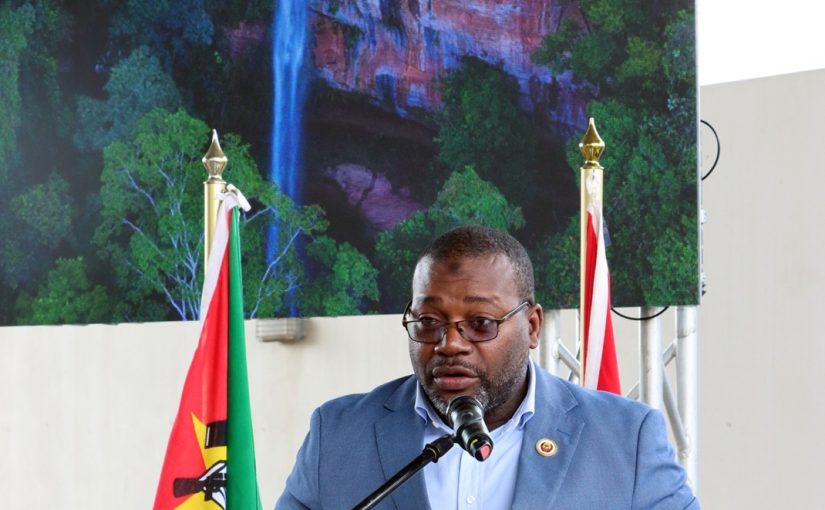Mozambique’s H1 VAT revenue slips 4.1%, daily collections average 196M meticais
Mozambique: Fisheries monitoring project launched – AIM

Photo: Royal Norwegian Embassy in Maputo
The Mozambican Secretary of State for the Sea and Fisheries, Momade Juízo, has launched a project named “Improving Fisheries Monitoring, Control, and Inspection Capacity (MCS)”, which is aimed at strengthening the country’s capacity to combat illegal and unreported fishing.
The MCS Project, to be implemented in partnership with the United Nations Food and Agriculture Organization (FAO), will provide specialized technical support, with funding from the Norwegian government and will have a specific component to be led by the United Nations Office on Drugs and Crime (UNODOC). However, the project budget was not revealed.
It is expected that the project may improve the capacity of the authorities across the country’s 572,000 square kilometers of water in the exclusive economic zone and along its 2,700 kilometers of coastline
According to Juízo, the government is committed to promoting a sustainable, inclusive, and job-generating blue economy and “the MCS Project is aligned with government policies, which urge everyone to contribute to measures to protect marine resources, with a greater focus during closed seasons, by strengthening inspection and combating illegal fishing at sea and in our inland waters.”
For his turn, António De Vivo, the head of UNODOC in Mozambique, said that the project is innovative because it transcends the technical dimension, expressing a collective commitment to the sustainability of marine resources.
“The fisheries sector plays an essential role in the livelihoods of thousands of families and in food security. However, it faces significant challenges, including illegal, unreported, and unregulated fishing, which, in the industrial sector alone, defrauds the country of between 60 and 70 million UD dollars annually”, he said.
The UNODC role in the project, he said, will be based on international instruments such as the United Nations Convention against Corruption (UNCAC) and the Convention against Transnational Organized Crime (UNTOC), conducting the assessment of the value chain of the fisheries sector and the assessment of corruption risks.
FAO representative José Fernandes said that illegal fishing “harms legitimate operations, compromises sustainable development goals, and is intrinsically linked to crimes such as corruption and fraud, affecting justice and responsible institutions.”
“The project contributes to FAO priorities and sustainable development goals, such as combating hunger, conserving marine resources, and building fair and effective institutions. The project will contribute significantly to reducing illegal fishing, but also to increasing food and nutritional security for coastal communities, as well as to the conservation of marine ecosystems and the sustainable socioeconomic development of Mozambique”, he said.












Leave a Reply
Be the First to Comment!
You must be logged in to post a comment.
You must be logged in to post a comment.